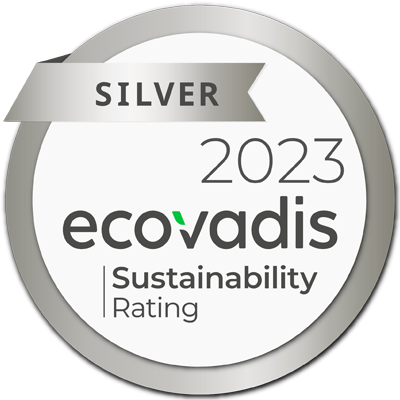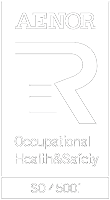PUR Cables
PUR cables, also known as polyurethane cables, are a type of electrical cable that is designed for use in demanding and harsh environments. They are constructed using polyurethane, a synthetic polymer known for its durability, flexibility, and resistance to abrasion, chemicals, and oils. PUR cables are commonly used in industrial applications where standard cables may not withstand the conditions.
Here are some key characteristics and uses of PUR cables:
- Durability: PUR cables are highly durable and can withstand mechanical stress, making them suitable for applications where cables are subject to bending, twisting, or crushing.
- Flexibility: They are flexible even in low temperatures, making them ideal for outdoor and cold storage applications.
- Abrasion Resistance: PUR cables have excellent abrasion resistance, which makes them suitable for applications where the cables come into contact with rough surfaces or are exposed to friction.
- Chemical Resistance: They are resistant to a wide range of chemicals, oils, and solvents, making them suitable for environments where exposure to these substances is common.
- Moisture Resistance: PUR cables are often used in wet or humid environments because they are resistant to moisture and can maintain their electrical properties even when exposed to water.
- UV Resistance: Some PUR cables are designed to be UV-resistant, allowing them to be used in outdoor applications where exposure to sunlight is a concern.
- Temperature Range: They can typically operate over a wide temperature range, from very cold to very hot conditions.
- High Electrical Performance: PUR cables are used for various electrical and electronic applications due to their ability to transmit electrical signals reliably.
Common applications of PUR cables include:
- Industrial Machinery: They are used in machinery and equipment found in manufacturing and industrial settings.
- Automation and Robotics: PUR cables are often used in automated systems and robotic applications where flexibility and durability are essential.
- Material Handling: Conveyor systems and equipment in material handling applications often use PUR cables due to their resistance to abrasion and mechanical stress.
- Medical Devices: Some medical equipment and devices use PUR cables because of their biocompatibility and resistance to sterilization processes.
- Outdoor and Harsh Environments: PUR cables can be found in outdoor applications like wind turbines, construction equipment, and agricultural machinery.
- Marine and Offshore: They are used in marine and offshore environments where exposure to saltwater and harsh weather conditions is a concern.
PUR cables are a versatile and robust choice for various applications where durability, flexibility, and resistance to harsh conditions are required. They play a crucial role in ensuring reliable electrical connections in challenging environments.
When it comes to international standards for cables, including polyurethane (PUR) cables, there are several relevant standards and certifications that manufacturers and users can refer to for guidance and assurance of quality and performance. While there may not be a specific international standard exclusively for PUR cables, cables are typically manufactured according to general cable standards that cover various cable types, including those with polyurethane insulation or jackets.
Here are some important international standards and certifications related to cables:
- IEC (International Electrotechnical Commission) Standards: IEC is a widely recognized organization that sets international standards for electrical and electronic technologies, including cables. Specific standards related to cables can include IEC 60227 for insulated cables, IEC 60245 for rubber-insulated cables, and others that may be applicable depending on the cable’s construction and application.
- UL (Underwriters Laboratories) Standards: UL is a safety certification organization, primarily recognized in North America. While it’s not an international standard per se, UL standards are widely used in the cable industry for safety and performance testing. UL standards relevant to cables include UL 758 for appliance wiring material and UL 62 for flexible cords and cables.
- EN (European Norm) Standards: In Europe, cables often adhere to EN standards. EN 50525, for example, specifies requirements for flexible cables with PVC insulation and sheath. EN standards ensure compliance with European Union regulations.
- ISO (International Organization for Standardization): ISO standards can be applicable to cable manufacturing processes and quality control. ISO 9001, for instance, relates to quality management systems that manufacturers may implement to ensure consistent cable quality.
- NEC (National Electrical Code): While not international, the NEC is the standard for electrical installation in the United States. It includes specifications for the use of different cable types in various applications.
- CE Marking: In the European Union, CE marking signifies that a product complies with EU safety, health, and environmental protection requirements. Cables sold in the EU should adhere to relevant EN standards and carry the CE mark.
- RoHS (Restriction of Hazardous Substances) Directive: This EU directive restricts the use of certain hazardous substances in electrical and electronic equipment, including cables. Cable manufacturers must ensure compliance with RoHS requirements.
It’s important to note that specific cable standards and certifications may vary depending on the region and application. Therefore, when selecting or specifying cables, it’s crucial to consult the appropriate standards and regulations that apply to your specific use case and location.
Additionally, cable manufacturers often provide data sheets and product documentation that specify the standards and certifications their cables meet, making it easier for customers to choose cables that align with their requirements and quality expectations.
Products
Contact us
Please, don’t hesitate to contact us for additional information on our company or our products.
Other News
-
Tratos Cavi, Italian Multinational Leader in the Sector, Acquires Endurance Telnet, Dedicated to Fibre Optic Cable Production
-
Tratos Announces Strategic Expansions and Technological Innovations
-
Tratos Cavi Spa has acquired AFL Telecommunications Europe Ltd in the UK
-
Tratos Powers Up the 380kV Rondissone-Turbigo Overhead Line
-
Powering a Sustainable Future with Cables
-
Prof Maurizio Bragagni Esq OBE, CEO of Tratos Ltd, received the SSE Sustainability Supplier Awards in the Individual/Team category
-
Tratos Pioneers Sustainable Innovation in the Energy Industry with Bornewables at "The Wire" Trade Fair
-
Tratos participates in the round table on Fusion Energy









